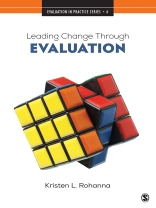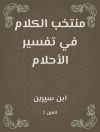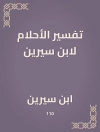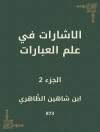Evaluators who are interested in developing or improving a program or policy frequently look to formative evaluation as a guiding framework. This book shows why those hoping to use evaluation to drive change in complex systems, rather than develop or improve one program, policy, or product, need to shift from the oversimplified idea of formative evaluation to a more specified continuous improvement model grounded in improvement science. In doing so, author Kristen L. Rohanna provides guidance to both evaluators and others, such as K-12 educators or hospital administrators, who lead improvement initiatives in their organizations and seek to solve persistent problems of practice. The book includes an extended case study: a networked improvement community of five public middle and high schools.
Daftar Isi
Series Editor Introduction
Acknowledgments
Foreword by Louis Gomez
Preface
About the Author
Part 1 • Seeking Change in a Complex World
Chapter 1 • What Do We Mean by Formative Evaluation?
The Evolution of Formative Evaluation
Continuous Improvement and Improvement Science
Other Continuous Improvement Approaches
Conclusion
Chapter 2 • The Truth About Complex Systems
Systems and Complexity Science
Learning Your Way Through Problems
Multiple and Inclusive Perspectives: The Need for Embracing
Actors Within the System
Building Capacity for Participatory Approaches
Conclusion
Part 2 • The Case Study
Introducing the Case Study
The Challenge
Case Study Conceptual Framework
Chapter 3 • The Beginnings of a Network
Building the Network Hub Team
Building the Rest of the Team
Recruiting the Network Schools
Launching the Network
Our Own Challenge: Decision to Separate From the Larger Network
Conclusion
Chapter 4 • The Re-Launch
Seeking the Counsel of Others
Developing the Network’s Theory of Improvement
Taking Action Through PDSAs
The Network’s Outcome, End of Year 1
Conclusion
Chapter 5 • A Tale of Two Visions – Building Individual Capacity
The Math Instructional Vision (Subject Knowledge)
The Vision for Building Improvement Science Capacity (Profound Knowledge)
The Network’s Initial Improvement Science Capacity
The Two Visions Intersect
Conclusion
Chapter 6 • The Importance of Being Structured – Building Organizational Capacity
Organizational Capacity
Individual Versus Organizational Capacity
Network Structures
Conclusion
Chapter 7 • Not All Learning Is Created Equal – Fostering Transformational Organizational Learning
The Learnings Generated During Year 1
The Importance of Reflective Structures for Single- and Double-Loop Learning
Intentionally Designing Activities to Foster Double-Loop Learning
Conclusion
Chapter 8 • Lessons and Reflections From a Case Study
Lessons From Research and Practice: Findings From the Case Study
Lessons From Continued Practice: Additional Reflections
Bringing It All Together: Learning From Astronauts, Elephants, Einstein, and Teachers
Moving Forward in a Complex World
Appendix: Case Study Methodology
Setting
Case Study Design
References
Index
Tentang Penulis
Kristen Rohanna is a professor in the Educational Leadership Program and Social Research Methodology Division in the School of Education and Information Studies at the University of California, Los Angeles (UCLA). Rohanna’s practice and research focus on using evaluative methods to effect social change, with a particular emphasis in the area of education. As such, she works closely with K-12 teachers and administrators to support their use of evaluation and improvement science methods. Before her time at UCLA, Rohanna was a Harvard Strategic Data Fellow and the Manager for Research and Evaluation at the San Jose Unified School District. Her education experience provided the context for her New Direction for Evaluation article: Breaking the Adopt, Attack, Abandon Cycle: A Case for Improvement Science in K-12 Education, about the potential power of continuous improvement methods and the challenges school leaders face when attempting to undertake these methods. Rohanna also has a forthcoming article in the American Journal of Evaluation about building the improvement science capacity of teachers. Rohanna has extensive program evaluation experience, including leading numerous program evaluations for the California Department of Education. Currently, she is leading a statewide evaluation of the 21st Century California School Leadership Academy. The initiative provides professional learning opportunities to K-12 education leaders, including equity-centered leadership and improvement science. Rohanna received her Bachelor of Arts degree in History from the University of Pittsburgh and her Master of Arts degree in Demographic and Social Analysis from the University of California, Irvine. She received her Ph.D. in Social Research Methodology from UCLA.












